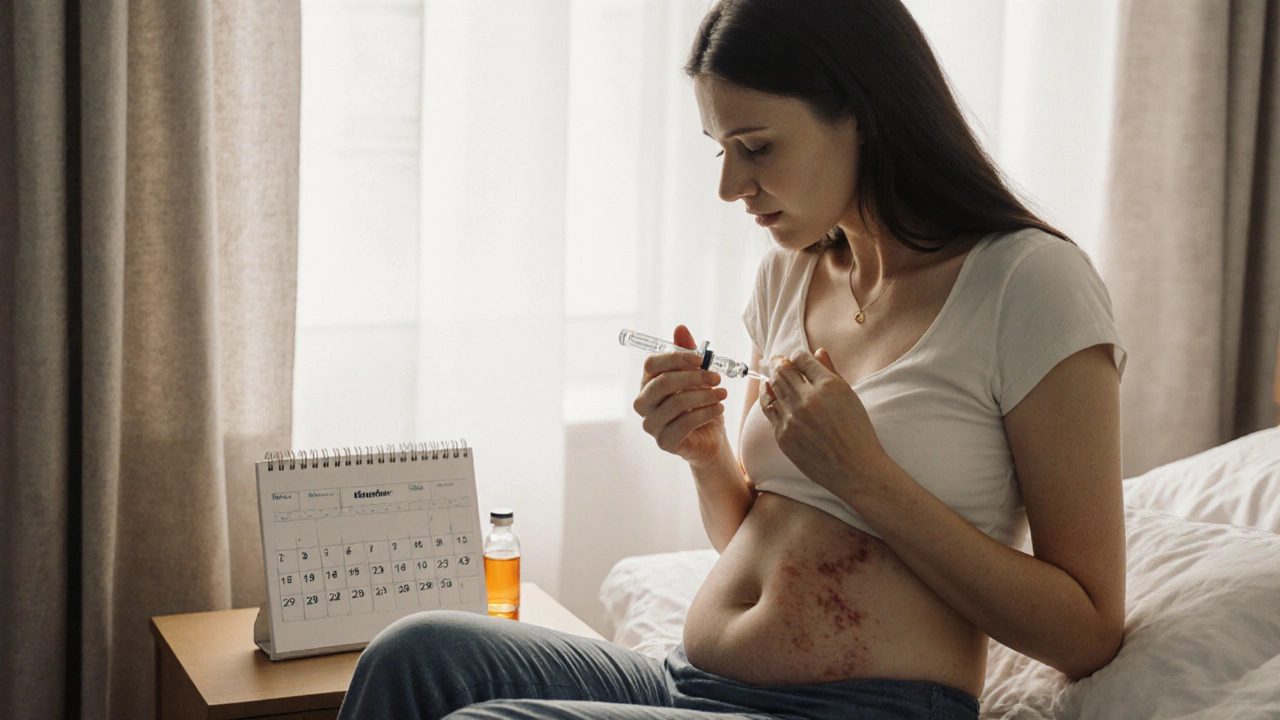IVF shots aren't as painful as most expect - most people feel only a quick pinch. Learn what the injections really feel like, how to reduce discomfort, and why the emotional weight matters more than the needle.
Read MoreFertility Treatment Needles: What You Need to Know Before Starting IVF
When you start fertility treatment needles, small injections used to stimulate egg production during IVF. Also known as fertility shots, these are a standard, non-negotiable step in most IVF cycles. They’re not glamorous, but they’re the backbone of getting your body ready for conception. Most people assume the needles are the hardest part—until they realize it’s the timing, the tracking, and the emotional weight that come with them.
These needles deliver hormones like follicle-stimulating hormone (FSH), a key hormone that prompts the ovaries to develop multiple eggs, or human chorionic gonadotropin (hCG), the trigger shot that tells your body to release those eggs. You’re not injecting random drugs—you’re guiding your body through a controlled version of its own natural cycle. The goal? More eggs, better timing, and higher chances of success. In India, clinics often use branded versions like Gonal-F, Menopur, or Ovitrelle, but the science behind them is the same worldwide.
Some people worry about pain. The needles are short—often 1-inch—and most are injected into the belly or thigh. The sting lasts less than a second. What’s harder? The daily routine. You’re not just taking a pill; you’re managing a schedule, tracking symptoms, and sometimes dealing with bloating, mood swings, or fatigue. It’s not just physical. It’s mental. You’re watching your body change, and you’re waiting—for results, for hope, for a sign it’s working.
What you won’t find in most brochures? The quiet moments. The shaky hands before injecting. The partner learning to draw up the dose. The midnight texts to your clinic asking, ‘Is this normal?’ The way you start noticing every twinge. These needles aren’t just medicine—they’re a daily act of faith.
And you’re not alone. Thousands in India go through this every year. Some succeed on the first try. Others need multiple cycles. Some switch to natural IVF. Others try acupuncture, Ayurvedic herbs, or yoga to ease the stress. The posts below cover real experiences—from how to handle the injections at home, to what happens when the trigger shot doesn’t work, to why some women stop after one round and others keep going. You’ll find practical advice on reducing discomfort, understanding your medication schedule, and knowing when to ask for help. This isn’t about pushing through pain. It’s about understanding what’s happening in your body—and giving yourself permission to feel it all.





